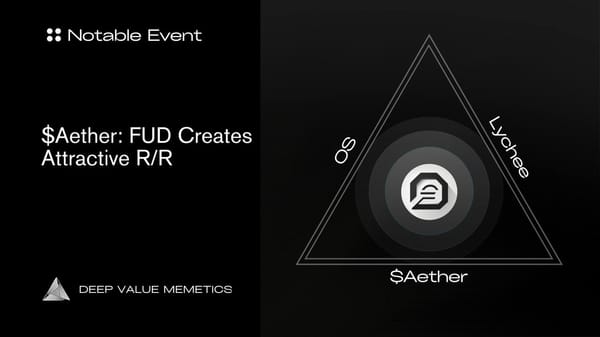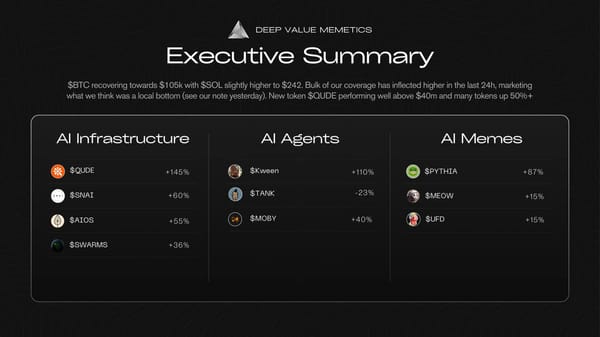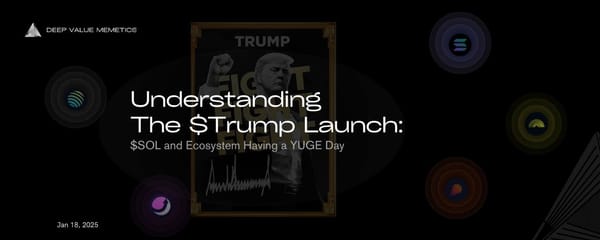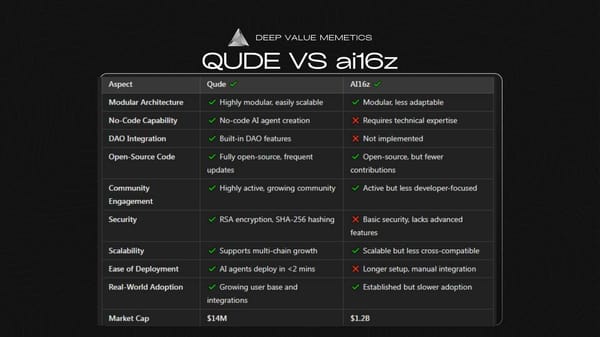$Pippin Demo Looks Clean; Still Await Visibility on Launch
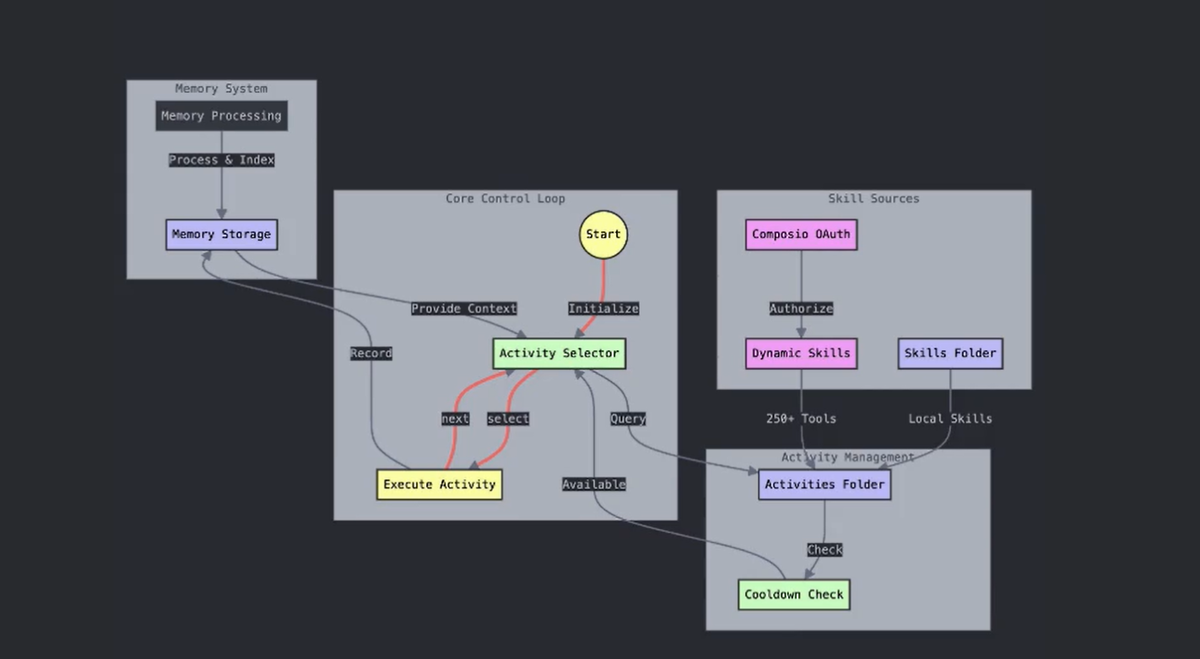
Notable Event | $Pippen ($165m FDV) | @pippinlovesyou Via @yoheinakajima
DVM View: @yoheinakajima demo’d the highly anticipated open-source python-based $Pippin Framework tonight (official release still TBD), with 11k viewers tuned in on X (note: $pippin has 28k holders). Our take-aways are: 1/ Web UI looks clean; 2/ simple and easy and use of plug-ins through Composio which keeps the code lean and clean; 3/ mechanism to track the agent’s activities which is beneficial to diagnose. We continue to believe Framework wars are still heating up with lots of potential for share shifts through the next 6-12 months. We think @yoheinakajima and his community are very talented, and tech is well-positioned as an alternative to leading frameworks. However, lack of clarity on timeframe to launch could remain one overhang.
What is the $Pippin Framework?
The $pippin framework introduces a structured system designed for managing and executing activities. It consists of three main sections: Memory System, Core Control Loop, and Skill Sources.
The Memory System includes "Memory Processing" for processing and indexing data, which then interacts with "Memory Storage" for data retention.
This section feeds into the Core Control Loop, which starts with an initialization phase, followed by setting the previous context. The loop then moves to the "Activity Selector," where activities are either selected or queried based on availability. Once an activity is selected, it is executed, and the process loops back to select the next activity.
The Skill Sources section includes components like "Composio OAuth" for authentication, "Dynamic Skills" and "Skills Folder" for managing different types of skills (both local and dynamic), and "Activity Management" which involves checking activities from the "Activities Folder" and performing a cooldown check to manage activity execution timing.
This framework appears to be designed for efficient activity management, skill integration, and memory handling within an application or system.
The core philosophy behind this Framework is simplicity, slow is smooth & smooth is fast, promote experimentation, and focus on use case.
This is an innovative approach to developments of an AI agent that focuses on dynamic interaction, adaptability, and decentralization. It allows AI agents to evolve through interaction and develop new behaviours.
How It works?
This framework operates at the Anticipatory level of agentic systems, which emphasizes extensive experimentation. Its core mechanism involves characters that, once they establish an objective, begin to:
Identify the necessary skills to achieve that objective,
Code those skills,
Store them for future use, and
Utilize them as needed.
The process begins with character configuration, followed by an iterative cycle between:
Activity Selection: Here, the character chooses from a range of activities based on its current objectives.
Activity Execution: Each activity is executed and then stored in an accessible memory, allowing for reuse in different contexts.
The activities are executed through skills, which are essentially reusable functions, many involving API calls. These calls are integrated using Composio, which provides over 250 integrations. Composio facilitates authentication into various tools, converting their actions into dynamic skills that can be employed as activities within the framework.
This approach significantly reduces the amount of code required, maintaining a lean framework while enhancing adaptability and efficiency.
The Digital Being Monitor of this framework at first provides a comprehensive overview of a an agent’s core attributes including memory, mood, energy, and personality. The demo showcased three skills including: Open AI Chat for conversation, Image Generation for visual creation, and LLM for advanced language processing.
The interface also comes with an Onboarding Wizard, which allows users to navigate through existing activities via the Activity Tabs, create or modify activities to suit specific needs, and configure character details like backstory and core values. Users can also monitor ongoing activities and their outputs in real-time, alongside managing API keys to ensure secure and efficient external service interactions.
How it’s Different vs others?
The $Pippin Framework stands out with its emphasis on a structured approach to activity management, skill integration, and memory handling, which contrasts with the more generalized frameworks like Eliza by $ai16z, which emphasizes versatility and scalability in AI agent deployment across various digital ecosystems but doesn't prioritize activity management as specifically as $Pippin does.
Eliza supports a broader range of applications with its focus on community-driven development and open-source contributions. Its worth noting that they key difference is that Eliza is for things which other developers have figured out how to do, $Pippin instead is focused on how to do things which hasn’t been done.
The Rig Framework by $Arc, on the other hand, is known for its robust infrastructure for AI development, particularly in processing context and meaning akin to human cognition. It's less about managing discrete activities like $Pippin and more about providing a solid foundation for AI to understand and navigate complex scenarios, making it a competitor in terms of AI sophistication rather than activity management.
Rig might not offer the same level of customizable activity control, or the skill integration model seen in $Pippin but excels in creating AI that can interpret and react to nuanced inputs.
Zerepy by $Zerebro focuses on creativity in AI applications, with a strong community backing for artistic and cultural AI outputs. While Zerepy's integration with $ai16z's community is a synergy in open-source development, its primary focus is on creative AI functionalities rather than the structured activity execution and memory management that $Pippin provides.
Zerepy doesn't have the same systematic approach to skill development and execution but offers a niche in creative AI development.
In summary, $Pippin's strength lies in its specialized approach to automating and managing activities with a focus on lean code and efficient resource use as noted through API calls, distinguishing it from Eliza's broad scalability, Rig's deep contextual understanding, and Zerepy's creative AI capabilities.
However, each framework caters to different aspects of AI development which indicate that their relevance depends heavily on the specific needs of the AI project at hand.

